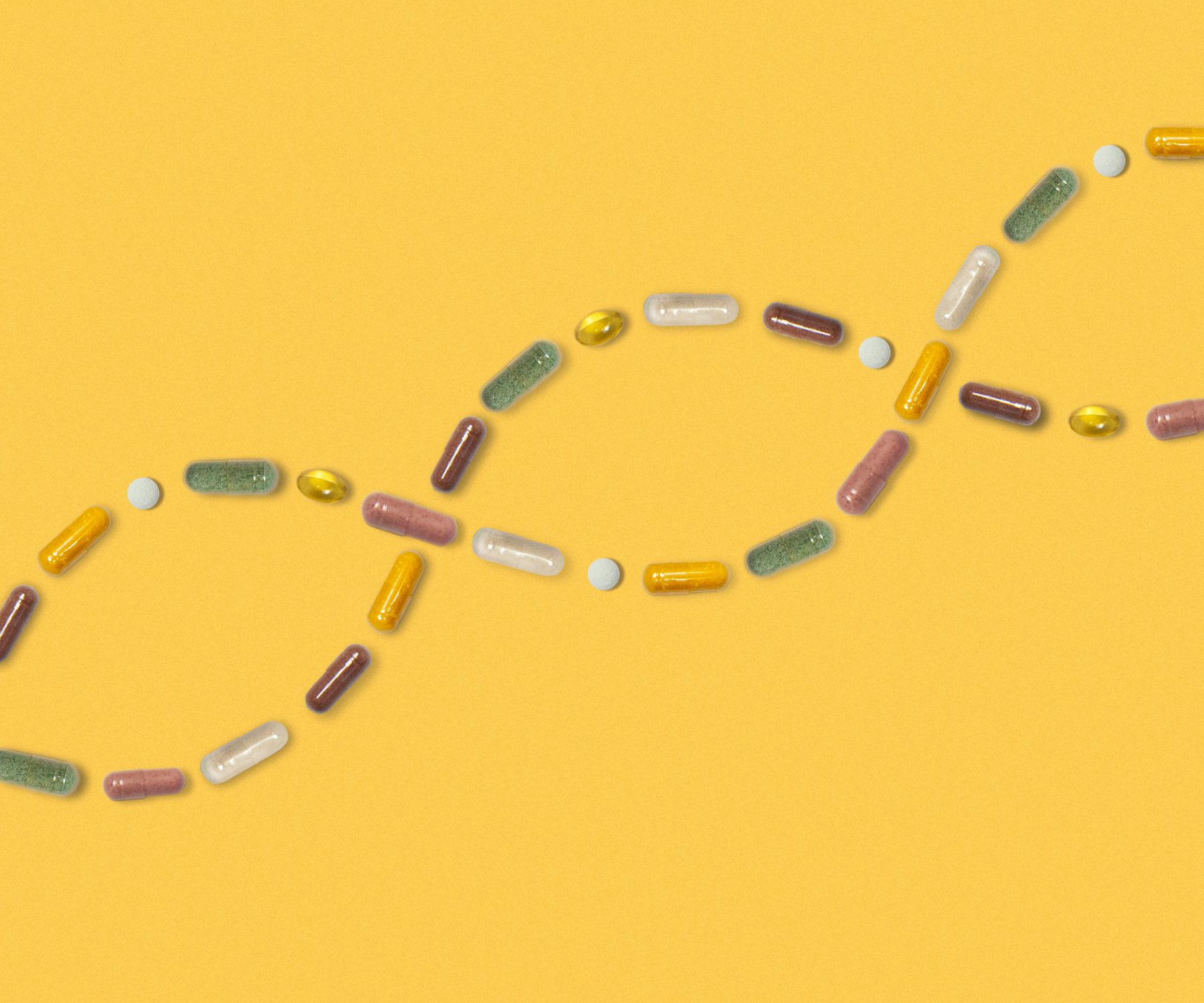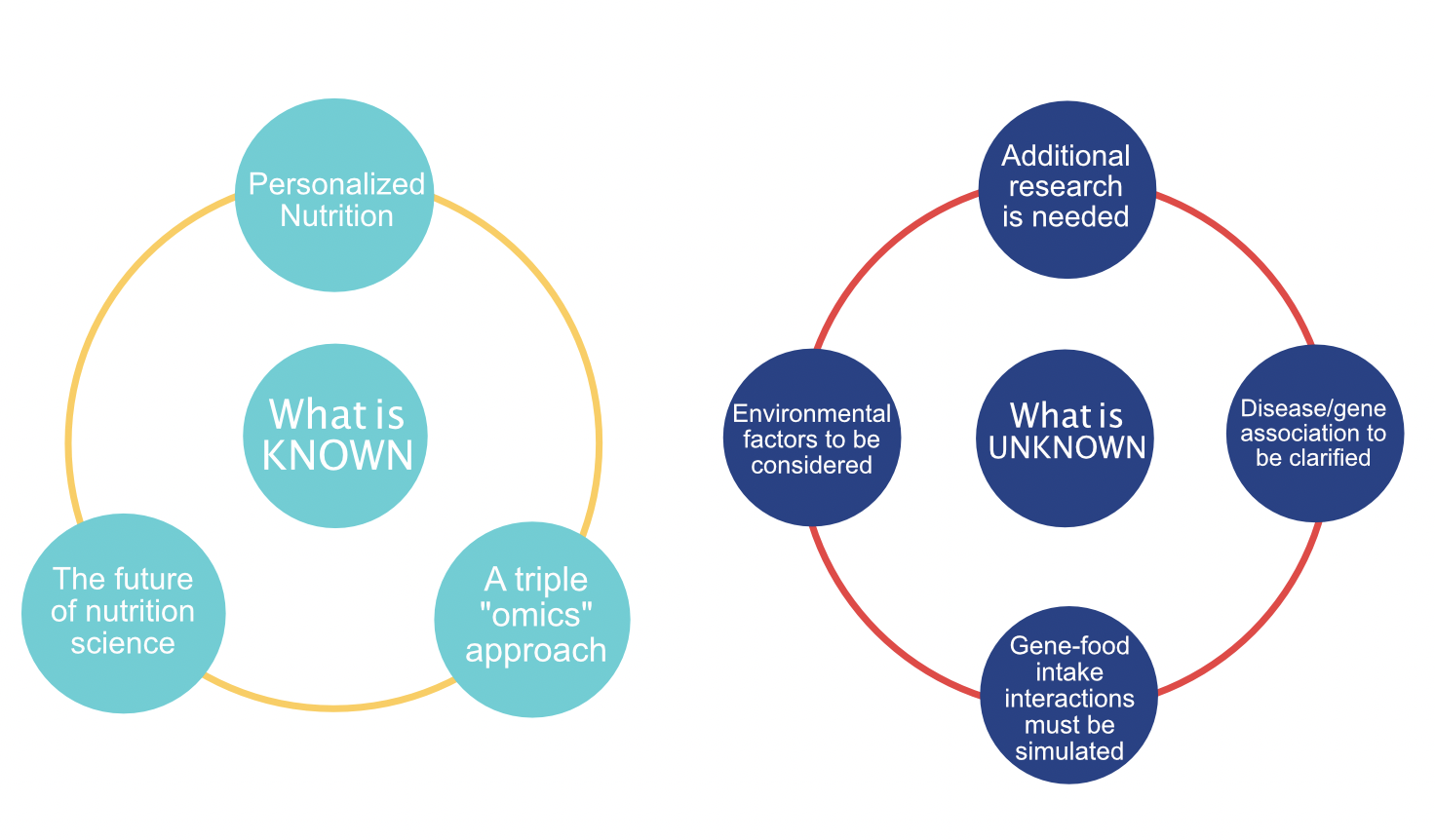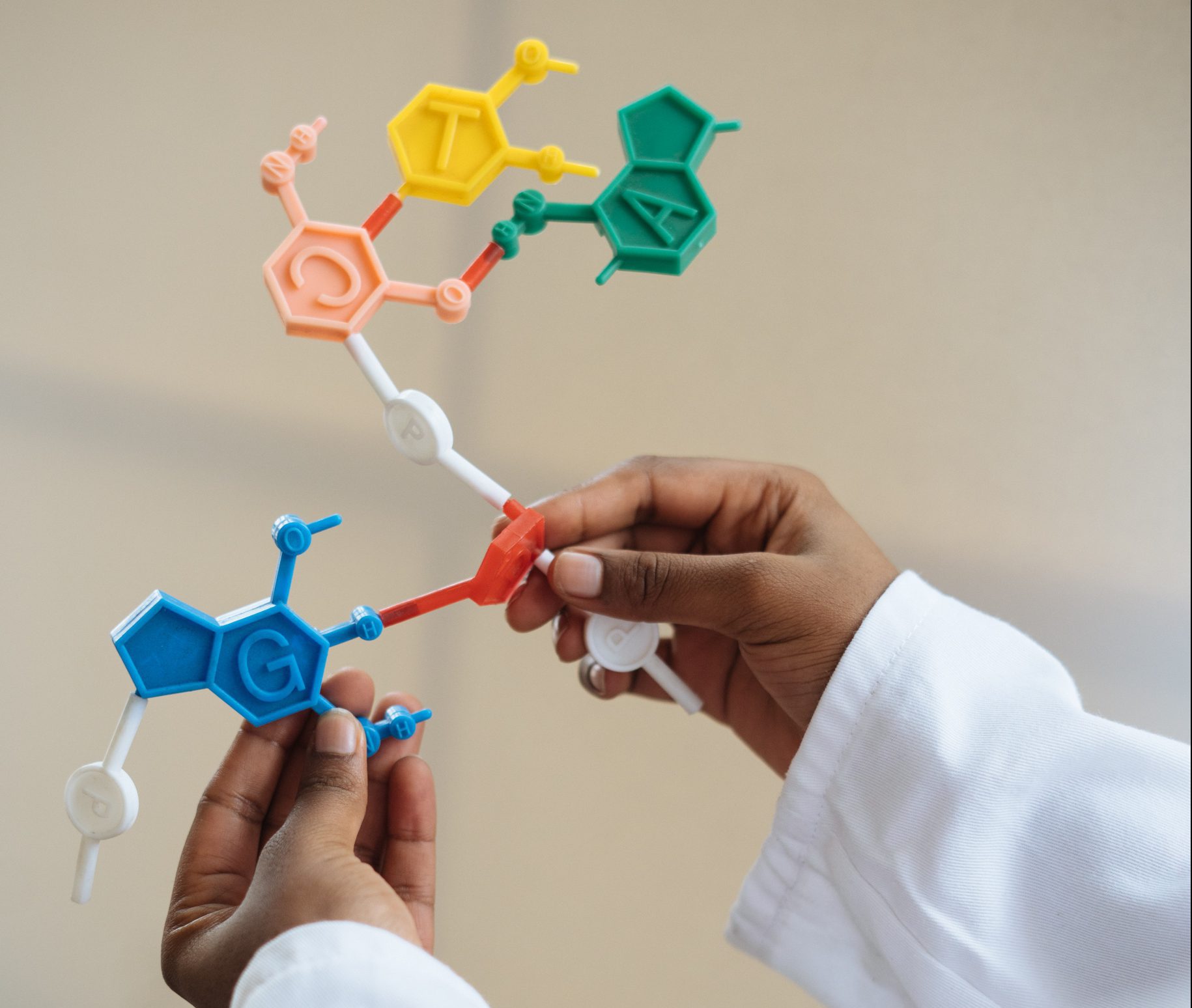
What is Nutrigenomics?
LAST UPDATED: November 10, 2022
So much of our culture is about striving to be healthy and to live long and plentiful lives. Our medicine has also evolved to match this drive.
However, being healthy and living longer can be somewhat out of our control. We often can’t change our social makeup, and we’d be hard-pressed to alter our genetic makeup. Therefore, it would help to understand each of these things.
And this is something that we have in our control. One area of study that is making this understanding possible is nutrigenomics.
While not yet a buzzword, nutrigenomics is an innovative and evolving area of study which can address many of our society’s issues around diet, exercise, and weight gain.
If you’ve ever felt like you’ve done everything you can do to become healthy and nothing seems to work, tapping into genetic-based nutrition will likely help.
Proven sciences like nutrigenomics can be applied to different lifestyles to allow individuals to learn more about genetic nutritional relationships.

So what is nutrigenomics?
More than just a fancy-sounding word, nutrigenomics is really the study of the relationship between genes and nutrients at the molecular level. Some scientists might look at how genes play a role in certain predispositions or illnesses. Others may look at how genes can be useful for treating certain ailments.
This area of study is super important because it looks past what conventional medicine looks at by really diving into the root of the issue.
Take dieting, for example. If you’ve done everything that your doctor has told you to do around losing weight (such as exercising five days a week, eating a super healthy diet, and drinking plenty of water) and still aren’t shedding those pounds, then you may feel like something else is going on. Well, something could be going on. And nutrigenomics can tap into that.

Nutrigenomics should be able to tap into your genetics to see if there is a genetic barrier blocking your efforts or something else going on.
Think of nutrigenomics as first understanding genetic predispositions, like “my parents were obese, so I am more likely to be obese.” Then, you go a little further and glean insight into the why and how this might be the case.
Instead of just prescribing something based on your genetics, it looks at the relationship between a person’s genes and dietary intake. If you consume food, your body will digest it, absorb the nutrients, and pass it through. Sometimes the way a person takes in food is distinct, like how certain people have food allergies and others don’t!
So, the way the body responds to food and nutrient consumption is genetically unique to each of us and can tell an individual a lot about their health.
Why Nutrigenomics is Important
The term nutrigenomics was first described in 2001 from a Peregrin study and was later reviewed in van Ommen and Stierum (2002). Since then, this area of research has been on the rise, and it’s no surprise why!
This emerging science addresses genetic-nutritional relationships by asking what is known and what is unknown.

Nutrigenomics study personalized nutrition, the future of nutrition science, and the three omics (transcriptomics, proteomics, and metabolomics).
Scientists are also looking at what is unknown regarding the gene-nutrition relationship, such as environmental factors, gene associations, and gene-food interactions.
Tapping into these unique relationships is extraordinary and unprecedented.
Nutrigenomics can be applied in everyday life (as we’ll talk about later on) and can be a better tool for addressing severe chronic illnesses!
Indeed, these emerging sciences have the potential for doctors to provide more personalized nutritional advice, which can actually tap into some of the genetic reasons for illnesses!
By looking at an individual’s unique genetics, nutrigenomics might suggest that the metabolism acts a certain way when given certain foods, nutrients, or caloric intake.
Nutrigenomics vs. Nutrigenetics
In any discussion around nutrigenomics, it’s also essential to distinguish it from nutrigenetics. While they sound similar, they’re different and shouldn’t be confused.
Here’s a quick definition:
- Nutrigenomics: The study of how genes and nutritions interact on a molecular level.
- Nutrigenetics: The study of the relationship among genes, diet, and health outcomes.
While super nuanced, these are actually two different areas of study.
One way to think about these two areas of fields is in how they can be applied.
Nutrigenetics might still look at one’s genes and address a person’s individual nutrient requirements (based on genotype). It might also look at illness prevention/mitigation.
Nutrigenetics will (more likely) inform a person on how their genome affects what they eat. Therefore, a person walking away with this information will know how to maximize their health.
So with nutrigenetics, you might learn about your genetics to inform your diet.
While nutrigenomics can help inform a diet, it is more about how you choose to change your gene expression. These expression changes might impact a person’s weight, health, fitness, and so on.
Nutrigenomics will look at the reverse relationship to understand how what you’re eating is changing your gene expression (and therefore changing your physiology, health, and wellness).
It can then be applied for optimized health.

Applying Nutrigenomics in Everyday Life
Understanding how nutrigenomics can be applied is what scientists are really trying to find out.
After all, what good is science if it can’t be applied to our daily life?

One of the things that nutrigenomics does is allow for personalized nutrition. If an individual were to take a DNA test kit and send it to a company studying nutrigenomics, they might get back an analysis of their gene expression based on what they eat.
With this info, people might better understand why they can’t shed that weight, why regular diets aren’t working for them, or maybe why they’re so tired all the time (it might be your boss nagging on you, but it might also be a genetic predisposition!).
A great example of nutrigenomics research is a study done on mothers who lived through a famine while pregnant. The study analyzed how women consumed only 400 to 800 calories per day during the famine period. Decades later, their children had genetic-based health markers like elevated rates of obesity, cardiovascular illness, and high cholesterol.
Amazing.
By looking at how food has disrupted or changed gene expression in the past, doctors and nutritionists can better understand chronic illness and dietary needs. This is mind-blowing stuff!
Sure, it’s personalized nutrition, but it’s also understanding the basic building blocks of humans. Now when someone says, “I got it from my momma,” we might really know what that means!
Having this type of insight on hand might change how humans think about vitamin, nutrient intake, and supplementation. Genetically-informed supplement subscriptions could be something that doctors begin recommending because it actually makes sense and because it could support genetic gaps in nutrient absorption or intake.
Future of Nutrigenomics
As a rather new field, nutrigenomics (and its sister nutrigenetics) present a real possibility for addressing health from the genetic level. Instead of knowing that “you’re predisposed to a chronic health condition,” you may know exactly how that came about and can actually do something about it!
For once, humans can use optimized health through genetic testing and subscription supplementation. It can also inform personalized nutrition!

The future of nutrigenomics is exciting because it touches on so many issues that our society struggles with. Companies like Autumn DNA have tapped into this potential to provide DNA-based subscription recommendations.
It has the potential to:
- Better inform physical activity requirements
- Support genetic-based subscription supplementations
- Reduce the risk of chronic health conditions
- Improve life quality and longevity!
The true potential of nutrigenomics is currently unknown, but researchers are aware that its future is here to stay.
